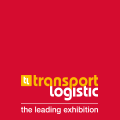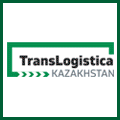The European Commission’s Sustainable and Smart Mobility Strategy, will fail to achieve 2050 carbon neutrality targets as it is based on a distorted “tank-to-wheel” approach that only measures CO2 emissions at the vehicle tailpipe. This will severely limit the decarbonisation potential of commercial goods and passenger transport by road.
Commission plans must use the more comprehensive “well-to-wheel” approach to guide more targeted public and private investments to reduce emissions. Without this, the blunt modal shift approach in this strategy will lead to hugely misguided and futile investments: a high price to pay for a sub-standard result.
Regarding passenger transport, the plan’s aim for collective transport under 500km to be carbon neutral by 2030, based on the “tank-to-wheel” approach, will effectively destroy the coach transport sector, by far the greenest and most inclusive form of transport.
The strategy will hit vulnerable citizens, such as the very young, the elderly and the disabled, who rely on coach transport, as well as removing cost effective services that steer people away from their private cars.
This distorted plan for carbon neutrality will merely move CO2 emissions from a very low emission green coach to a coal-burning electric train, when the source of the power is considered.
“Diesel coaches are already dramatically cleaner than electrified rail, so we don’t understand why the Commission continues to ignore the unparalleled contribution of collective passenger transport by road,” said Raluca Marian, IRU’s General Delegate to the EU.
“This plan will extinguish a crucial collective mode of transport without any progress in decarbonising Europe. The EU needs to recognise coach transport as sustainable, inclusive and affordable, and support investment into even greener coach fleets, not kill them off.”
“This misguided reliance on only targeting CO2 emissions at the vehicle tailpipe, and not including the energy source, means its plans are heavily distorted and will be ineffective,” concluded Raluca Marian.
Source IRU



.jpg)








